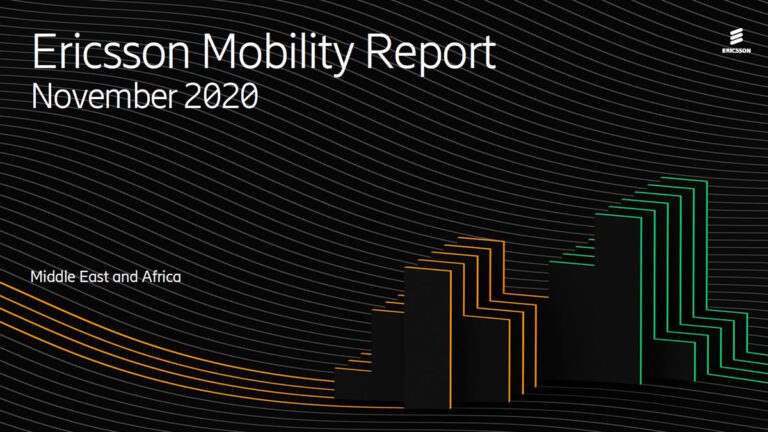According to the latest mobility report released by tech firm – Ericsson, Sub-Saharan Africa is expected to experience a 6.5 times growth in mobile data traffic compared to current figures. The tech giant notes; with an estimated 0.87EB total traffic per month in the current year, the mobile data industry in the said market will shift to an average of 5.6EB by 2026 with an average of 8.9GB per smartphone in the period.
Ericsson acknowledges, mobile service providers will consequently invest more in their networks to mitigate this growth to meet changing consumer requirements. Sub-Saharan Africa continues to lack behind the rest of the world with an estimated 84 percent mobile penetration, but the trend will continue to experience increased adoption over the forecast period especially with continuing availability of LTE that accounts for around 15 percent of current subscriptions.
The report further highlights the need to release more spectrum in Africa, a move that will expand coverage while improving network quality that will ultimately encourage more mobile adoption.

According to Ericsson’s President of Middle East and Africa Fadi Pharaon, the current report on mobility highlights the fundamental need for quality connectivity as the key to handle the anticipated uptake especially as the demand for capacity as well as coverage of mobile networks continue to thrive across the African continent. Pharaon further said that investments in 4G networks that’ll ultimately give way to 5G is critical in the journey in digital transformation across the continent. Pharaon also revealed the company’s intention to invest in technology leadership that’ll offer state-of-the-art infrastructure solutions needed for its customers to seize opportunities within Africa.
The report further highlights an expected 76 percent increase in mobile broadband subscriptions over the forecast period, thanks to a young, growing population equipped with digital skills as well as availability of more affordable mobile devices. additionally, 5G subscriptions starting 2022 are expected to reach 5 percent by the year 2026. However, the report acknowledges High Speed Packet Access (HSPA) will remain the dominant technology in Sub-Saharan Africa over the period with a share of over 40 percent in 2026.
Providers compete with distinct strategies
Telecommunications companies continue to use an offering-led strategy which entails a wide range of services connected to mobile subscriptions such as mobile banking, gaming and insurance. Current outlook shows that offering-led service providers tend to couple network performance with certain use cases as well as end-user expectations, such as promoting the best network for video streaming.
The report shows most challengers adopt an offering-led strategy, the idea behind this strategy is to be the first to market new offerings by employing high-level market innovation to get a sizeable slice often with one-for-all offerings. They deploy extensive campaigns and promotional programs to gain traction and capitalize on their “first-mover advantage”.
Reported increase in service providers offering Fixed Wireless Access (FWA)
Besides the needs arising as a result of the pandemic, especially as more companies allow staff to work from their homes, the report shows three main factors driving adoption of fixed wireless access services. Businesses as well as individuals continue to deploy digital services thereby increasing demand, and secondly, Fixed Wireless Access services utilized on 4G or 5G platforms continue to prove to be more cost-efficient broadband alternatives in areas that lack Fixed internet such as DSL, cable and fiber. Additionally, increasing capacity necessitated by broader spectrum allocations and technology advancements for 4G and 5G networks are driving higher network efficiency in terms of the cost per delivered gigabyte.
Third, countries are encouraging broadband connectivity through programs and subsidies, since it is considered vital for digitalization efforts and economic growth. Download the full report from here










